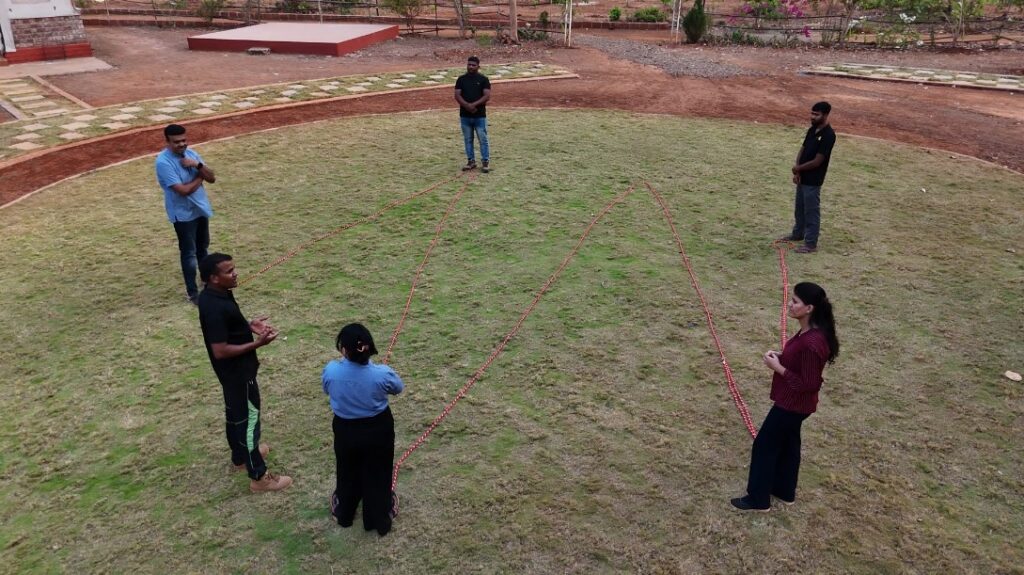Why High-Performing Teams Still Struggle
It’s Not Capability, It’s Trust
More often than not, when teams fail, it’s not because people don’t know how to do their jobs. It’s because they stop trusting one another, and no one knows how to talk about it. That’s the part leaders often miss.
At first glance, everything may seem fine: tasks are getting done, meetings are on time, and communication appears cordial. But beneath the surface, something’s off. People nod in agreement during discussions but privately disagree. Team members hesitate to challenge each other’s ideas. Feedback rarely flows. Discomfort is masked with polite silence. The team starts functioning in survival mode, low-risk, low-trust, and low-impact.
And by the time it reflects in metrics-missed deadlines, slowed innovation, poor retention-the cultural damage is already done. This is why building team trust must be a proactive, continuous process rather than a one-time intervention.
A Real-World Lesson in Eroded Trust
Take what happened at Wells Fargo as a cautionary tale. In 2016, the bank was rocked by a scandal in which over 5,300 employees were fired for creating millions of fake customer accounts. The root cause? An intensely high-pressure sales culture that discouraged dissent and rewarded silence.
Many employees reported they felt uncomfortable with the aggressive targets but were afraid to speak up. Some who did raise ethical concerns were ignored or retaliated against. A 2017 Congressional report concluded that the company’s toxic culture and leadership style stifled transparency and contributed directly to the wrongdoing at Bitdefender.
This wasn’t a failure of individual capability. It was a failure of trust. People stopped believing they could safely tell the truth-and it cost the company billions in fines and reputation. Leaders who prioritize building team trust are far more likely to avoid such breakdowns.
Trust Doesn’t Break Loudly. It Disappears Quietly.
Trust rarely collapses in a dramatic moment. Instead, it slowly evaporates:
One skipped conversation at a time
One withheld opinion at a time
One awkward silence in a meeting when someone should’ve spoken up
It’s easy to miss the signs because teams can remain functional on the outside. But inside, they’re losing their sense of cohesion.
And here’s the truth: You can’t fix this with a one-day outing, a motivational speaker, or a clever team game. Building team trust doesn’t happen overnight. It’s restored through intention, vulnerability, and consistency over time.
What Actually Rebuilds Trust?
Trust is rebuilt in the small moments that feel uncomfortable but honest:
- A teammate finally shares how they feel instead of staying silent
- A leader admits a mistake and doesn’t deflect blame
- Someone gives tough feedback, and it’s received with openness, not ego
These moments are the foundation of building team trust that lasts.

Conclusion
If what you’re seeing on your team is surface-level harmony and deep-down hesitation-don’t ignore it. Don’t wait for it to blow up in a town hall or exit interview.
You don’t need a crisis to fix trust. You need the courage to look at what’s being left unsaid.
Let’s build the kind of team culture that doesn’t need performance reviews or dashboards to prove it’s working-because you can feel it in the room. And that starts with building team trust every day, one honest interaction at a time.
🔗 Want your offsite to spark real growth and not just good memories? Discover how our expert-led experiences integrate deep reflection and skilled facilitation to drive meaningful change. Explore our approach to Team Building and Culture Transformation.
About the Author:
Anil Thomas is a certified Corporate Trainer and Founder of Mustardseed Training. He specializes in designing Leadership Development Programs, Culture Transformation Programs, and Team Building Training that help organizations build high-performing teams and strong workplace cultures. His insights on leadership, collaboration, and performance excellence have been featured in several corporate learning and development programs across India.
For more such videos, you can follow Anil Thomas on Youtube & Instagram
Want to know more? Let our consultants help you
Hit the ‘Click Here’ button to request for a call with us and explore how our customized solutions in leadership development, team building, and culture transformation can drive lasting impact for your organization.

